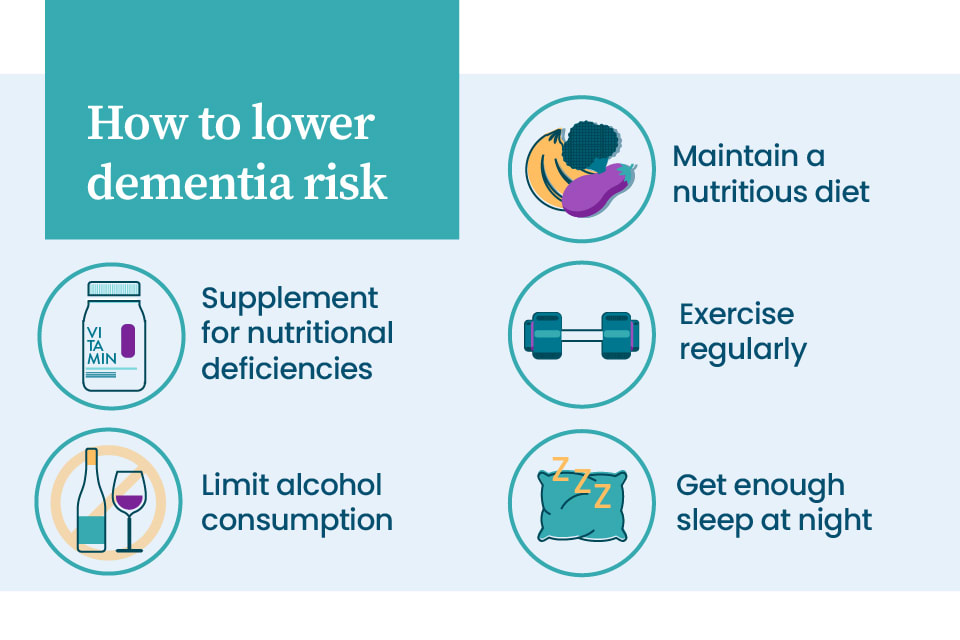Chemo Brain and Dementia: What’s the Connection?

Everyone forgets things from time to time, whether it be an anniversary or what you needed to grab from the store. However, sometimes memory loss can be severe enough that it interferes with daily tasks. This is especially true for cancer patients and those who have undergone chemotherapy. This forgetfulness that many cancer patients experience is called chemo brain, a phenomena that mimics many symptoms of dementia.
Is memory care the right fit?
Let our free assessment guide you to the best senior living options, tailored to your needs.
Over the years, many studies have been conducted to figure out whether there’s a link between chemotherapy and the development of dementia, but the clinical studies say the jury is still out. It’s often difficult to tell whether a lapse in memory stems from cancer treatment or is an early sign of dementia. However, there are potential cues that can help you distinguish between the two forms of memory loss.
Read on to learn more about chemo brain, how it is similar and different than dementia, and whether chemotherapy can cause dementia.
In this article:
What is chemo brain?

Chemo brain, also known as chemo fog, is a term commonly used by cancer patients to describe thinking and memory problems associated with cancer and chemotherapy cancer treatments, according to the National Cancer Institute. Chemo brain can be caused by a wide range of factors:
- Cancer itself, in the case of brain tumors
- Cancer treatment, including chemotherapy and other anticancer drugs, radiation therapy, hormone therapy, and surgery
- Conditions related to cancer treatment, such as anemia, fatigue, sleep and nutrition problems, hormone problems, stress, anxiety, and depression
How are chemo brain and dementia similar?

Because chemo brain mimics dementia, the two share many similarities. Both patients with chemo brain and seniors with dementia may experience the following symptoms:
- Disorganized behavior or thinking
- Confusion
- Memory loss
- Difficulty concentrating or learning
- Making poor or dangerous decisions
Patients experiencing chemo brain often report feeling “less sharp,” with symptoms tending to interfere with daily tasks, according to interviews conducted with a group of breast cancer patients in the UK.
It’s important to remember, however, that experiencing symptoms similar to dementia does not necessarily mean you’ve developed the disease. Nor does it mean that you’ll eventually develop dementia — chemo brain has been shown to be reversible after an individual regains their health.
Chemo brain vs. dementia: What are the differences?
While these two forms of memory loss are similar, there are some noticeable differences as well. The following key differences can help you discern between dementia and chemo brain:
The cause of the memory loss is different. Dementia is caused by brain damage resulting in cognitive changes that gradually increase over time. Chemo brain is cognitive changes directly caused by cancer or cancer treatment. So, if you are a young adult who has cancer or has been treated for cancer and are experiencing these symptoms, it is most likely chemo brain.

Is memory care the right fit?
Let our free assessment guide you to the best senior living options, tailored to your needs.
The duration and progression of symptoms vary. Chemo brain may last for a short time or for several years, but it has a tendency to improve over time. Dementia, on the other hand, typically worsens as time goes on, and there’s no cure.
Chemo brain patients are aware of their memory loss. People experiencing chemo brain typically recognize the lapses in memory on their own. Dementia patients do not — their caregivers and loved ones are usually the people who point out the behavioral changes.
Recalling past memories is possible with chemo brain. While both forms of memory loss make it difficult to remember things, prompting and cues can usually jolt one’s memory when they have chemo brain. But people experiencing dementia typically cannot recall basic information, even when they’re prompted.
They have different side effects. Speech patterns typically aren’t affected in someone experiencing chemo brain. Dementia patients, however, often confuse, reverse, or stutter their words. Hallucinations and wandering are two other common dementia symptoms that do not result from chemo brain.
Can chemotherapy cause dementia?
It’s still unclear whether chemotherapy can cause dementia because there are so many variables across research studies. Cancer patients normally have a wide range of health conditions and different risk variables, such as age, sex, weight, chronic inflammation, types of chemotherapy being used, and types of cancer being treated.
Some clinical studies show a direct link between chemotherapy treatment and cognitive decline that possibly leads to dementia later in life. Other studies argue instead that a positive relationship exists between chemotherapy and dementia, with cancer survivors less likely to develop it. These conflicting results may have something to do with the overall health of the individual and how well they care for themselves after surviving cancer.
How does chemotherapy affect the elderly?
It’s important for seniors to know and understand the potential risks and benefits of various cancer treatment options so they may can to choose whichever treatment best fits their situation.
Although chemotherapy is an effective cancer treatment, it may have a long-lasting negative impact on older cancer survivors and their quality of life. This was the conclusion to research led by world-class doctors, geriatricians, and oncologists from the Memorial Sloan Kettering Cancer Center, ranked as a top cancer hospital in the U.S. for more than 30 years. Seniors are typically frailer than younger adults and often have multiple diseases or medical conditions, putting them at an increased risk of chemotherapy-related toxicities.
What’s the next step?
Further research must be carried out to determine whether chemotherapy has a direct link to dementia. If you’re a cancer patient and are having memory issues, talk to your doctor about any symptoms you’re experiencing to decide what options will work best for you.
Regardless of whether they’re experiencing chemo brain or dementia, all patients are encouraged to take on an active lifestyle and form healthy habits that can reduce their future risks of dementia. Doctors and researchers agree that the following lifestyle adjustments can help to offset dementia risks:
- Maintaining a nutritious diet
- Supplementing for nutritional deficiencies
- Exercising regularly
- Limiting alcohol consumption
- Getting enough sleep at night
If you think you or a loved one may be experiencing dementia, consult these A Place for Mom articles:

Memory care questions? Get expert help
Tell us your care needs to receive personalized guidance from our advisors.
- How to Prevent Memory Loss in Old Age, which includes helpful tips on how to prevent cognitive decline
- The 7 Stages of Dementia, which explains the differences in the seven stages of dementia and how to recognize them in your loved one
If long-term memory care is a concern, reach out to a Senior Living Advisor at A Place for Mom for free advice on the care options in your area. Whether you’re searching for home care, assisted living, or memory care options, these advisors can get you in touch with professional caregivers in your area that are ready to help.
Sources:
Bhatt, V. R., (2019, July 24). Cancer in older adults: Understanding cause and effects of chemotherapy-related toxicities. Future Oncology.
Ganguli, M. (2015, April). Cancer and dementia: It’s complicated. Alzheimer Disease & Associated Disorders.
Heck, J. E., Albert, S. M., Franco, R., & Gorin, S. S. (2008 September). Patterns of dementia diagnosis in surveillance, epidemiology, and end results breast cancer survivors who use chemotherapy. Journal of the American Geriatrics Society.
Henderson, F., Cross, A. J., & Baraniak, A. R. (2019, March 5). ‘A new normal with chemobrain’: Experiences of the impact of chemotherapy-related cognitive deficits in long-term breast cancer survivors. Health Psychology Open.
National Cancer Institute. Chemo brain.
National Institute on Aging. (2021, July 2). What is dementia? Symptoms, types, and diagnosis. U.S. Department of Health & Human Services.
Shahrokni, A., Wu, A., Carter, J., & Lichtman, S. M. (2015, October 13). Long term toxicity of cancer treatment in older patients. Clinic in Geriatric Medicine.
van der Willik, K., Schagen, S. B., & Ikram, M. A. (2018, August 31). Cancer and dementia: Two sides of the same coin?European Journal of Clinical Investigation.
The information contained in this article is for informational purposes only and is not intended to constitute medical, legal, or financial advice or to create a professional relationship between A Place for Mom and the reader. Always seek the advice of your health care provider, attorney, or financial advisor with respect to any particular matter, and do not act or refrain from acting on the basis of anything you have read on this site. Links to third-party websites are only for the convenience of the reader; A Place for Mom does not endorse the contents of the third-party sites.
Memory care in all states
The information contained on this page is for informational purposes only and is not intended to constitute medical, legal or financial advice or create a professional relationship between A Place for Mom and the reader. Always seek the advice of your health care provider, attorney or financial advisor with respect to any particular matter, and do not act or refrain from acting on the basis of anything you have read on this site. Links to third-party websites are only for the convenience of the reader; A Place for Mom does not endorse the contents of the third-party sites.
Memory Care options tailored to your needs
Memory Care options tailored to your needs